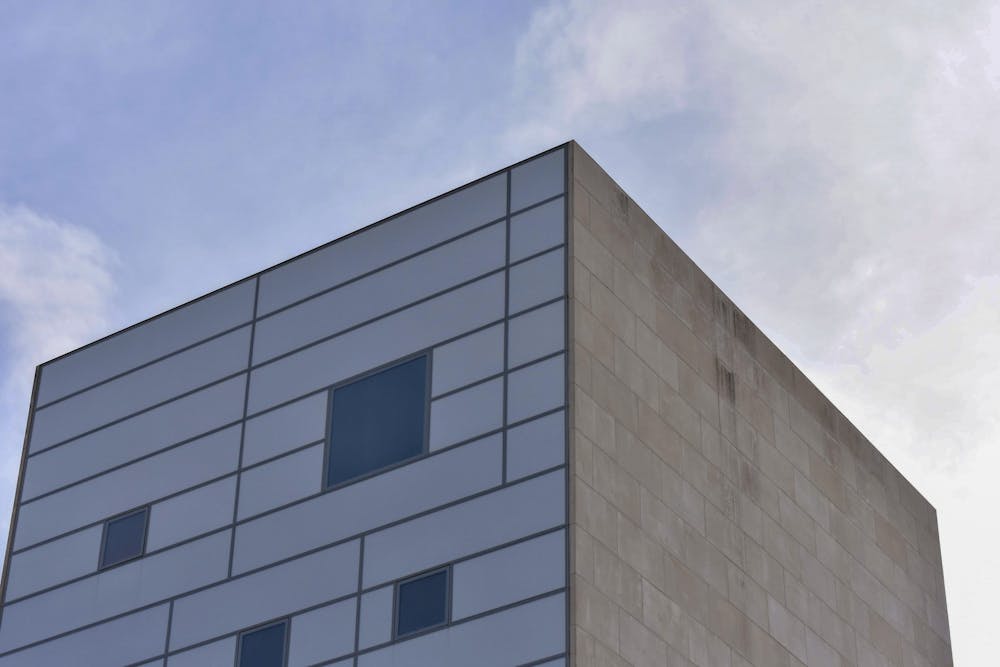When Princeton’s administration decided to send students home permanently, on March 13, 2020, instead of temporarily, for spring break, the news engulfed the campus in a wave of shock and sorrow. Students packed their things and clung to one another on Prospect Avenue, saying their goodbyes (and prompting an early wave of COVID-19 among our undergraduate population).
With most students sent home, measures of local seismology trends told us the earth at Princeton was quiet. No one walked across our quads or down residential college halls. The tremors of robust living and learning life had quieted.
Now, at the third anniversary of those painful farewells, we can feel the earth beneath campus vibrating once again, as it has since 1746. Students fly by on electric scooters and skateboards; people walk their dogs on Cannon Green and on the lawn in front of Nassau Hall; and our classrooms are filled with students and faculty pondering various truths and pursuing new knowledge.
The differences between before and “after” the pandemic appear to me in the interstices, or around the edges of an otherwise happy picture. We’re back, but we seem more tentative. More students than ever report mental health challenges; requests for appointments at Counseling and Psychological Services (CPS) continue to increase. More students than ever request accommodations from the Office of Disability Services (ODS). ODS once fielded requests mostly from students with physical accessibility needs; now, many more accommodations and adjustments concern mental health.
Princeton’s intergenerational community bears its COVID-era losses differently. Students missed years of identity formation and learning. Some faculty retired early, without teaching their valedictory classes or standing in the faculty room in Nassau Hall to hear their careers honored in the emeriti rolls. Staff saw their lives rearranged, settling into remote work. Faculty and staff with young children worked and parented simultaneously, mingling responsibilities typically kept separate.
Now, life and work resume in syncopated, often still bumpy ways. Our residential campus privileges live instruction. But sometimes, post-pandemic, it seems like we’re struggling to regain the basic educational social contract that once felt secure and inviolable.
Some faculty, for instance, report more incidents of “atypical” student behaviors: Students who don’t make eye contact with faculty or peers, students who won’t participate as actively in class as they might have in 2019. Some students who attended high school during the pandemic came to campus unaccustomed to in-person learning. Some manifest academic or social gaps that make their transition to college more difficult.
Pre-pandemic, we presumed that course attendance and participation were foundational to learning at Princeton. Now, in spring 2023, some accommodation requests come from students for whom attending or speaking in class are a source of stress.
Pre-pandemic, attending class brought (I hope) the anticipated pleasure of curiosity and surprise that should fuel all teaching and learning. Now, in spring 2023, some faculty wonder how to engage students most effectively as they reinvigorate their teaching post-Zoom. We face lingering challenges (and opportunities) as we restructure live engagement.
In addition to serving as dean of the college, I’m a performance studies scholar — a field that theorizes how people’s subjectivities and communities form through live social practices. We study rituals (religious worship, among other things) and more conventional theater-going, where audiences of strangers and friends convene to watch performers create moments we experience together.
During the pandemic, I attended Zoom Shabbat services and Zoom performances where actors performed on individual screens. These events exemplified pandemic-era isolation instead of the usual embodied collisions of the live.
Now that we’re back in space and time together, I’ve returned to the synagogue and the theater, enjoying once again those encounters with friends and strangers in precious moments of present-time exchange.

Other spectators and congregants are returning to live gatherings more gradually. Theaters around the country worry about attendance, concerned that spectators won’t be lured away from the convenience of online streaming and the comfort of their homes.
In fact, when one of our residential colleges recently offered tickets to a Broadway show, students signed up, but an alarming number failed to show up when the time came. Tickets went unused and many bus seats were empty. We seem to have forgotten how to honor the commitments we make to being present.
Attending classes offers a similar concern. Students (and faculty) are used to clicking a link, watching the screen, and commenting in the chat. We register for live-streamed events that we watch distractedly, doing email or shopping online with our Zoom squares dark. These habits linger. We’re still relearning how to be attentive and fully present in the moment.
I hope this persistent awkwardness and distractedness recedes as we reacclimate to being among one another. I’ve experienced once again the joy of a live audience, at “Between Two Knees” and at “Wuthering Heights” (both at Princeton’s McCarter Theatre Center). I’ve enjoyed events and lectures in Richardson Auditorium. I’m once again moved by the charisma of award-winners (like General Christopher Cavoli, who won this year’s Woodrow Wilson Award for service on Alumni Day) and impressed by the tributes of speakers (as at the dedication for Toni Morrison’s commemorative USPS stamp).
At those moments, I’m grateful that we’re back at Princeton. These are not the “before times”; all of us who lived through COVID-19 embody its anxieties and losses. It’s not, for me, the “new normal”; the pandemic made me rethink what “normal” means and to accept that the bonds and habits I once took for granted are tenuous. But for now, I’m glad to be relearning my commitment to presence, with all its uncertainty and coincidence, joy and hope.
Jill Dolan is Dean of the College at Princeton University, Annan Professor in English, and a professor of theater studies in the Lewis Center for the Arts.








